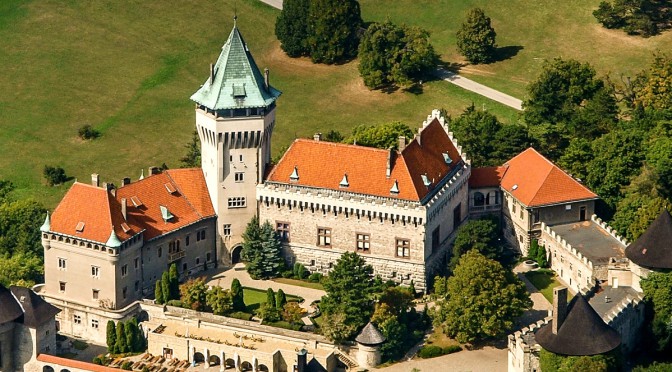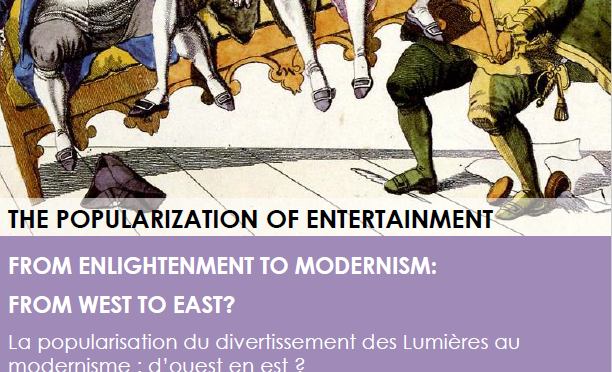Where: Villa Lanna, V sadech 1, Prague 1
Organizers: Eliyana Adler (The Pennsylvania State University), Kateřina Čapková (ÚSD AV ČR) and Ruth Leiserowitz (German Historical Institute, Warsaw)
Check the program and details on the organizers’ website here
Program
Wednesday 15 March
9:00 – Welcome
9:15 – 11:00 Family and Genocide
Chair: Eliyana Adler (Pennsylvania State University)
Dalia Ofer (Hebrew University of Jerusalem): Narrating Families’ Daily Life in East European Ghettos: Concepts and Dilemmas
Michal Unger (Ashkelon Academic College, Israel): Separation and Divorce in the East European Ghettos
Volha Bartash (Hugo Valentin Centre, University of Uppsala): Romani Family in the Holocaust: Ethnographic Field Notes from the Belarusian-Lithuanian Borderland
11:00-11:15 Coffee break
11:15 -12:30 Family Correspondence
Chair: Kateřina Králová (Charles University, Prague)
Joachim Schlör (University in Southampton): „I could never forget what they had done to my father“: The Absence and Presence of Holocaust Memory in a Family’s Letter Collection
Rony Alfandary (Bar Ilan University): Family Letters from Thessaloniki – Real and Imaginary Consequences
12:30 – 14:00 Lunch
14:00-15:45 Family and Choice
Chair: Ruth Leiserowicz (German Historical Institute, Warsaw)
Kiril Feferman (Ariel University): Changing Roles: Flight Decision-Making in the Mixed Families in the Soviet Union, 1941
Alina Bothe (Free University, Berlin): “This was the last time I saw my mother” – Families Responding to the First Mass Deportation in October 1938
Atina Grossmann (Cooper Union, New York City): Negotiating Gender, Family, and Survival Behind the Lines: Perspectives from the Margins of Holocaust History
15:45-16:00 Coffee break
16:00-17:45 Children’s Perspectives
Chair: Clara Royer (CEFRES, Prague)
Boaz Cohen (Western Galilee College, Akko): Family Survival Strategies as Seen by Survivor Children in their Early Testimonies
Sarah Rosen (Yad Vashem, Jerusalem): The Survival of Deported Families in Transnistrian Ghettos as Reflected in Diaries of the Youth
Joanna Beata Michlic (Bristol University): Grayer Shades of Jewish Identity: Atypical Histories of Child Survivors from Mixed Polish-Jewish Families in the Aftermath of the Holocaust
Thursday 16 March
9:00 – 10:45 Imagined Families
Chair: István Pál Ádám (CEFRES, Prague)
Natalia Aleksiun (Touro College, New York City): Uneasy Bonds: On Jews in Hiding and the Making of Surrogate Families
Rita Horvath (Yad Vashem): Hasidic Families under Pressure: An In-Depth Analysis of the Holocaust Testimonies Collected by Yaffa Eliach
Viktória Bányai (Institute for Minority Studies, Hungarian Academy of Sciences): The Impact of the Joint’s Assistance Strategy on the Lives of Jewish Families in Hungary, 1945-49
10:45 – 11:00 Coffee break
11:00 – 12: 45 Postwar Dilemmas
Chair: Stephan Stach (Institute of Contemporary History, Prague)
Laura Hobson Faure (Sorbonne Nouvelle University): Siblings in the Holocaust and its Aftermath: Rethinking the “Holocaust Orphan” in France and the United States
Marcos Silber (University of Haifa): Migrations, Gender and Family: Bottom-Up Perspectives on Migrations and Nation Building in 1950s’ Poland and Israel
Kamil Kijek (Wrocław University): Jewish Family Confronting the Holocaust Aftermath and Demise of Modernism: The Case of Polish Lower Silesia, 1945-1957
12:45-14:00 Lunch
14:00 – 15:45 Rebuilding the Family
Chair: Kateřina Čapková (Institute of Contemporary History, Prague)
Robin Judd (Ohio State University): “Experiencing Family and Home”: Jewish Military Brides, Allied Soldier Husbands, and the Centrality of Kinship, 1944-1950
Anja Reuss, Independent Historian: “Return to Normality”—The Relevance of Motherhood and Family for Sinti and Roma Survivors in the Aftermath of World War II
Sarah Wobick-Segev, University of Western Ontario: Looking for a Nice Jewish Girl . . .: Personal Ads and the Creation of Jewish Families in Germany during and after the Shoah, 1938-1953
15:45-16:15 Coffee break
16:15 – 17:45 Concluding discussion







